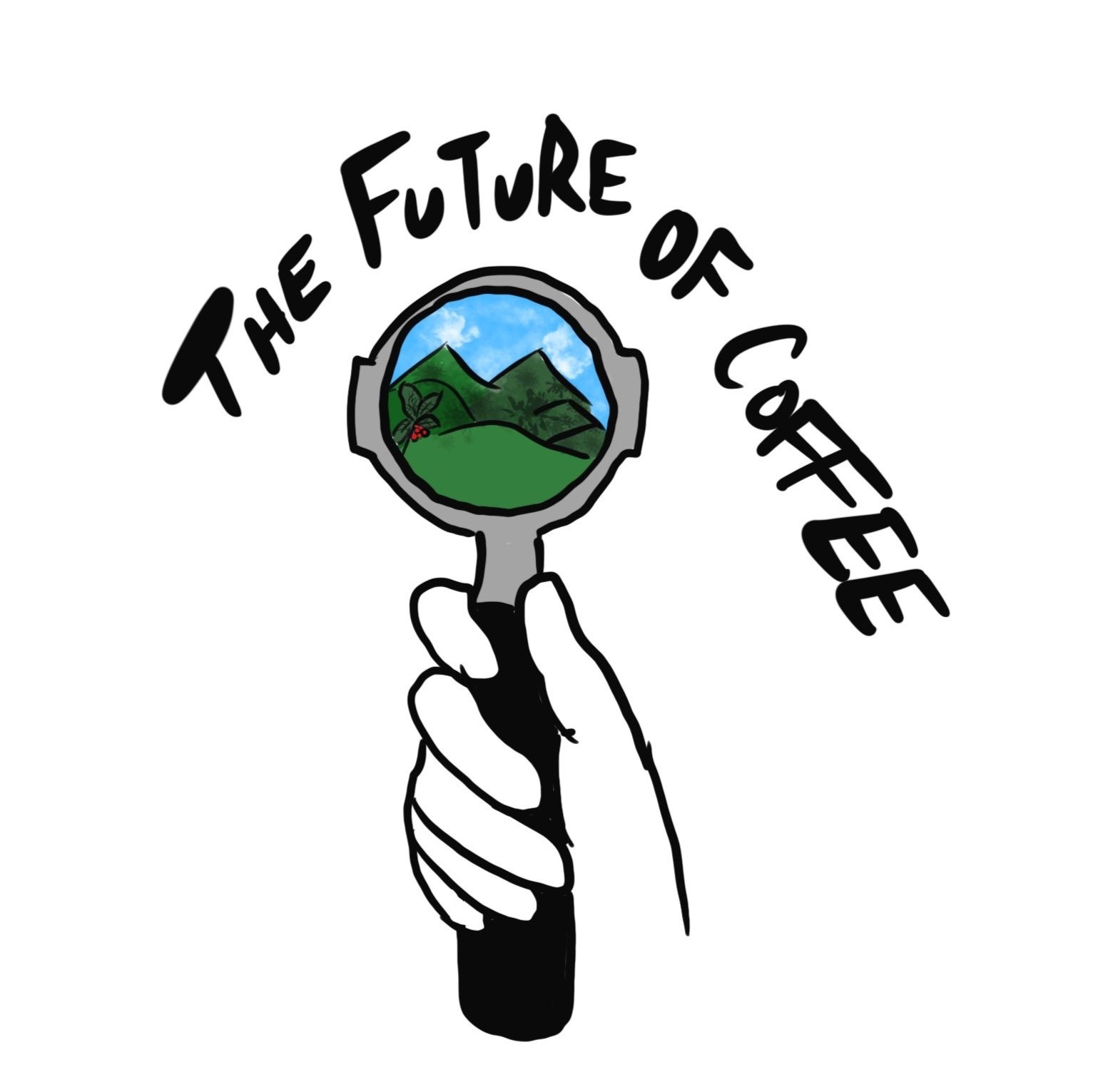The Future of Coffee: Tackling Climate Change and Ensuring Sustainable practices.
Let’s Connect on Social
Coffee is more than just a beverage – it's a global ritual, a staple of morning routines, and a cornerstone of the cafe culture in cities worldwide. From lattes to espressos, coffee brings people together. However, beneath the comforting warmth of your morning cup lies a serious challenge: climate change. Rising temperatures, unpredictable weather patterns, and environmental destruction are beginning to threaten coffee production, putting the livelihoods of millions of farmers at risk. Soon, growing coffee may not be economically viable without a shift in how we approach the industry.
At 787 Coffee, we're committed to not only providing exceptional coffee but also ensuring that the journey from bean to cup is sustainable, fair, and supports the communities who make it all possible. It’s time to rethink how we do business – not just for the future of coffee, but for the farmers who give us the gift of coffee.
The Impact of Climate Change on Coffee Production
The coffee industry has long been vulnerable to the effects of climate change. As temperatures rise, the land suitable for growing Arabica and Robusta – the two primary types of coffee beans – continues to shrink. According to experts, by 2050, up to half of the current coffee-growing regions will no longer be suitable for cultivation.
This looming crisis poses not only a threat to coffee lovers but also to the farmers who rely on this crop for their livelihoods. The vast majority of smallholder farmers live in poverty, receiving little more than a fraction of the price paid for coffee. The global coffee trade is plagued by unfair wages, high transportation costs, and the exploitation of workers.
A New Approach: Sustainable, Fair, and Resilient Coffee
One company that's tackling these challenges head-on is Quijote Kaffee, led by Andreas Felsen, a social entrepreneur who has been working to change the coffee industry for over 30 years. Andreas and his team focus on building direct relationships with coffee growers, cutting out the middlemen who often reap the largest profits. By paying farmers more than the industry-standard prices, they are helping to ensure that farmers are paid fairly for their hard work while supporting sustainable, environmentally-friendly cultivation methods.
One such example is Ecuador's Waylla Kuri cooperative, where smallholder farmers grow coffee using traditional agroforestry techniques that help protect the rainforest and encourage biodiversity. These farmers use trees to provide shade for coffee plants, reduce the need for fertilizers, and preserve the environment. By working together, the farmers have become more resilient in the face of climate change, which threatens monoculture farms that rely heavily on chemicals and irrigation.
For these farmers, coffee cultivation is not just a means of income – it's part of a deeper, cultural connection with the land. As Augusto Salazar, a member of the cooperative, explains, "We always work with the trees here. We call the system 'Chakra.' It’s traditional agroforestry. The trees help supply nutrients to the soil, which other plants absorb. They produce more fruit that way."
Changing the Coffee Market: Transparency and Fair Trade
For Felsen and others in the industry, the key to changing the coffee market lies in transparency and direct trade. By building trust with farmers and paying them a fair price for their coffee, companies like Quijote Kaffee are demonstrating that it’s possible to run a commercially successful business while ensuring that the people at the heart of production are treated with the respect and dignity they deserve.
At 787 Coffee, we share this vision. We believe in the power of direct trade and sustainable practices, ensuring that every cup of coffee we serve contributes to a better future for farmers and the planet.
Artisanal Coffee
HIGH ENERGY COFFEE!
The Search for Resilient Coffee Varieties
As the climate continues to shift, researchers are looking for coffee varieties that are more resilient to extreme weather conditions. One potential solution is the Liberica coffee bean, a wild coffee variety that thrives in areas prone to drought and pests. In Uganda, farmers are experimenting with Liberica to combat the challenges posed by climate change. India is a step ahead of the rest of the world and has been studying and practicing with Liberica.
Sophie von Loeben, an agricultural economist researching coffee cultivation in Uganda, explains, “Liberica is more resilient to drought and pest infestation, which is crucial for adapting to the changing climate. But we need to make sure that these new varieties also taste good. After all, the quality of the coffee is what drives the market.”
The challenge of introducing new coffee varieties to the global market is a long-term endeavor. Coffee is a tree, and it takes years for a tree to produce its first harvest. But the potential rewards – a more sustainable and reliable coffee industry – make the effort worthwhile.
787 Coffee's Commitment to Sustainability and Fair Trade
At 787 Coffee, we are dedicated to ensuring that the future of coffee is secure. We own our own coffee farm, we were born as a coffee farm, we are a coffee farm before we are coffee shops, the journey started by understanding the farm, working together with our coworkers at the farm. We have focused on sustainability and eco friendly methods, we have taken care of our land, of Puerto Ricos land, of the beautiful mountains of Maricao Puerto Rico, where 787 Coffee was born.
Fair trade practices around the world not only benefit the environment but also uplift the communities that grow our coffee. Whether it's through supporting agroforestry techniques or experimenting with new, resilient coffee varieties, we are committed to creating a future where coffee is produced in a way that honors both humans and the planet.
The coffee industry is undergoing a much-needed transformation. By embracing sustainable cultivation, fair trade practices, and the search for resilient coffee varieties, we can ensure that future generations will continue to enjoy the rich, flavorful coffee we love. At 787 Coffee, we're proud to be part of this change – and we hope you’ll join us in our mission to make every cup count.
Let’s Connect
At 787 Coffee, our commitment to sustainability and supporting coffee farmers runs deep.
Our beans come from Hacienda Iluminada, our very own coffee farm in Puerto Rico, where we prioritize sustainable and ethical farming practices. We also partner with neighboring coffee farms to help small farmers thrive, working hand-in-hand to improve their quality of life and support the future of coffee cultivation. Currently, we're expanding our efforts to include farms in Mexico and Colombia, where we focus on sourcing specialty coffee and uplifting coffee-growing communities throughout the Americas.
Since 2014, we’ve been more than just a coffee company – we are farmers, we are agriculture, and we are 787, dedicated to making a positive impact on both the environment and the livelihoods of coffee producers.
Kenny Santucci at 787 coffee’s end of year Summit - The Power of Consistency
At 787 Coffee, we believe that every cup of coffee should tell a story – one of dedication, sustainability, and community. From the rich soils of Hacienda Iluminada to the small farms we support across the Americas, our mission goes beyond offering great coffee; we’re here to make a lasting difference for the farmers and the environment. With our focus on fair trade practices, sustainable farming, and direct partnerships, we’re ensuring that the future of coffee remains strong, vibrant, and equitable.
Interesting to see what role AI plays in coffee. Is it robots or drones, is it new technology or new apps, we don’t know but we do know many changes will come to the coffee scene and we want to be ready to embrace and adopt new ideas that will help our planet and the gift of coffee.
Join us on this journey as we continue to grow, together, with every cup we brew.








